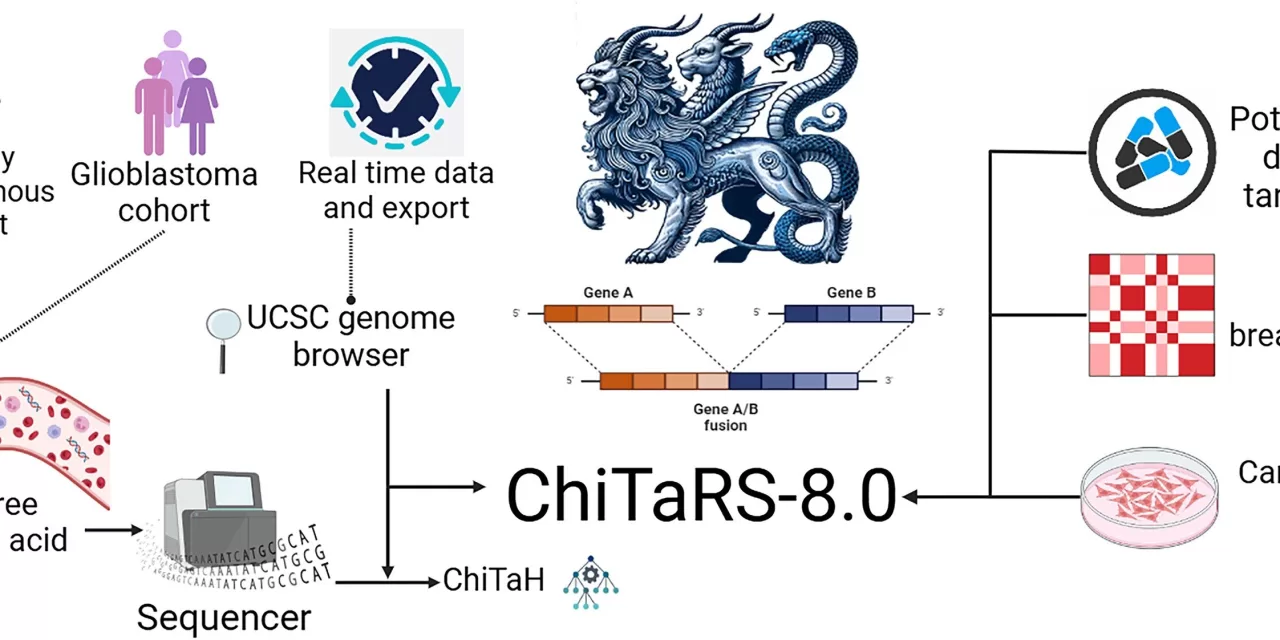A New Study at Reichman University’s Scojen Institute for Synthetic Biology Unveils ChiTaRS 8.0
A groundbreaking study led by Dr. Milana Frenkel-Morgenstern at the Scojen Institute for Synthetic Biology, Reichman University, has announced the launch of the ChiTaRS 8.0 database, the world’s largest collection of chimeric genes associated with cancer and other chronic diseases. This innovative database aims to accelerate the development of personalized cancer treatments, providing a powerful tool for both scientists and clinicians in the fight against cancer.
The ChiTaRS 8.0 database, published in Nucleic Acids Research, is the result of collaborative research with doctoral students Dylan D’Souza and Olwumi Giwa from the Azrieli Faculty of Medicine at Bar-Ilan University. The database boasts over 47,000 RNA transcripts and more than 100,000 chimeric sequences discovered in humans, providing an unparalleled resource for understanding gene fusions in cancerous tumors.
Gene fusions occur when parts of different genes combine, a process that often results in the production of abnormal proteins. These fused proteins can serve as crucial biomarkers for disease diagnosis and potential targets for new drug development. ChiTaRS 8.0 not only catalogues these genetic occurrences but also offers an integrated model for real-time updates, ensuring the database remains a cutting-edge tool for clinical applications.
One of the database’s key innovations is its ability to integrate with a “digital hospital” model. This feature enables real-time updates and the incorporation of new clinical data, providing doctors with the ability to personalize cancer treatments based on a patient’s genetic profile. This functionality offers significant potential for improving treatment outcomes by tailoring therapies to the individual characteristics of each patient’s cancer.
Dr. Frenkel-Morgenstern explains, “ChiTaRS 8.0 represents a major step forward in cancer research. It is a dynamic tool that will change how we diagnose and treat cancer, moving towards precision medicine by identifying the right drugs for the right patients.”
The database is also a vital resource for drug development. By integrating data from the DGIdb database, ChiTaRS 8.0 enables the study of fusion proteins’ compatibility with existing cancer treatments, such as protein inhibitors targeting specific cancer-promoting proteins. This can lead to the identification of new therapeutic strategies to combat various forms of cancer.
Prof. Yosi Shaham-Diamand, Director of the Scojen Institute, highlights that ChiTaRS 8.0 was specifically designed to predict tumor responsiveness to treatments, offering the potential to optimize treatment plans and minimize side effects for patients. The integration of artificial intelligence and complex data sets is planned for future updates, further enhancing the database’s capabilities.
The ChiTaRS 8.0 database is poised to foster collaboration among research institutions and clinicians globally. With ongoing additions, including information on FDA-approved drugs and tailored biomarkers for precision medicine, it is set to transform cancer research and treatment.
The study, titled “ChiTaRS 8.0: the Comprehensive Database of Chimeric Transcripts and RNA-seq Data with Applications in Liquid Biopsy,” is published in Nucleic Acids Research (2024), DOI: 10.1093/nar/gkae1126.
For more information on this transformative tool, visit Nucleic Acids Research.












